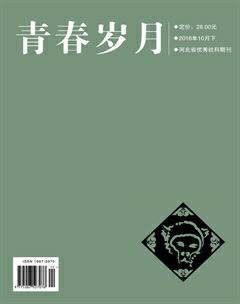A Study on the Humor in Donate Money
Abstract:Nowadays, humor has been a heated topic for scholars from different disciplines. In China, Zhao Benshans comic piece always ranks among the best for his humorous language and performing art. Therefore, many scholars make a research on how the humorous effect is generated in his comic piece. This essay is a tentative analysis of humor found in Zhao Benshans comic piece Donate Money from the violation of four maxims: maxim of quantity, maxim of quality, maxim of relevance and maxim of manner.
Key words:humor; Zhaos comic piece; Cooperative Principle
In order to convey some additional meaning and humorous effect, characters in Donate Money purposely offer information which is less or more than what has been asked; or say what they believe to be false or say things that are not related; or say things which are not clear and brief. Therefore, the humorous effect is realized by violating the four maxims.
1. Violation maxim of quantity in Donate Money
Violation of maxim of quantity can be grouped into two categories: providing information less than required and providing more information than needed. Concerning the second sub-maxim of Quantity “do not make your contribution more informative than is required” is frequently appears in Donate Money. The following example illustrates this case.
大长脸:没事,大爷是这么回事,搜狗是个输入法,只要在这输入法上打上二位的名字,哎,马上就出来了。不光电脑上有,手机上也有。
钱大爷:呵呵,这会儿听明白了。就是搜狗,他先出来,后来我牵根绳出来的,不管咋说,搜得到,还是全球的啊。(《捐款,2010》)
In this talk exchange, the photographer explained clearly that sougou is a kind of input method. Only by replying with “I see”, the conversation should have been finished. However, Qian provides more information that Bai will be first searched out in the way of searching a dog and then he will be searched out later pulling a rope in his hand. In fact, Qian wants to make fun of Bai to compare him to a dog. This over information tends to generate a piece of humor.
2. Violation of maxim of quality
Grice points out explicitly that the employment of several rhetoric devices, including irony, metaphor, hyperbole and meiosis, typically give rise to the violation of the first sub-maxim of Quality. In Donate Money, there is a talk exchange like this:
洋洋:啊大爷,您是怎么评价您亲家这个人的呢?
白大爷:他这个人,就好比当年的三毛、哪吒、金刚葫芦娃。
洋洋:为什么都是小孩呢?
白大爷:大人谁能干出这事儿来?(《捐款,2010》)
In the context, uncle Bai compares Qian as the characters from childrens books. However, we know that uncle Qian is an old man, not a kid. This metaphor carries the implicature that no adult can make such mistake like uncle Qian. Here, audience feel very funny for the comparison. Many cases in Zhaos comic piece produce the humorous language in this way. Here is another case:
钱大爷:这孩子这不胡闹吗。这都多大岁数人了,这么老了这么会是我儿子呢?
洋洋: 我是瞧你看他一眼,就以为他是你儿子呢。
钱大爷:我看他一眼,我还看你两眼呢,这么排你还是我孙子呢。(《捐款,2010》)
In this talk exchange, Qian obviously violates the first sub-maxim of Quality. i.e. do not say what you believe to be false. Here, Qian says that you think we are father and son because I take a glance at Bai and in this way, I can conclude that you would be my grandson if I took two glances at you. Obviously, Qian spoke what he believes to be false and makes audience burst into laughter.
3. Violation of Maxim of Relevance
As for the maxim of relation, it requires that each talk exchange should have a connection with each other rather than what is talked is irrelevant to the topic being discussed. The following example is a typical one:
钱大爷:净扯淡……那还能活不啊?人家全球都知道这点事了。还捐错了?要钱要脸?
白大爷:我要老伴……(《捐款,2010》)
In this short conversation, Qian asks Bai which does he want, money or face? Bai replies that he wants a wife instead. The talk exchange seems to be irrelevant, which makes the dialogue very funny. Sometimes, Zhao deliberately uses irrelevant answer to change the topic which makes audience burst into laughter.
4. Violation of Maxim of Manner
With regard to the maxim of manner, it requires one to avoid obscurity of expression and ambiguity, and to be brief and orderly. It requires that the conveyed meaning should be clear enough. In this comic piece, Zhao skillfully uses the partial tone to violate the maxim of manner, because the partial tone of Chinese characters always produces ambiguity. The following examples in Donate Money violate the maxim of manner by using the method of partial tone.
Example 1:
洋 洋:啊,大爷你好!
白大爷:没好!
钱大爷:他说生活美好,你说全了你别老丢字儿啊!生活美好,美好的生活就是享受。是不是啊?说全了他,现场直播呢!来……
Example 2:
白大爷:凭什么不让我说话?我是股东。
阿 姨:股东?
钱大爷:他那意思,这个行为全是他鼓动的。没有他鼓动我都不一定能干这事儿。(《捐款,2010》)
Zhao intentionally gives a misinterpret of “没好”(not fine) and “美好”(happy), “股东”(stockholder) and “鼓动”(instigate). In Chinese characters, “没好” and “美好”, “股东” and “鼓动” are partial tone. Here, in order to conceal the fact that he denotes money by mistake and save face, he deliberately uses this method to distort the speaker meaning. The audience burst into laughing for Zhaos humor and wit.
In Donate Money, the talk exchanges most frequently violate the maxim of relevance while the maxim of manner is the least violated. Besides, in the case of this comic piece, many rhetorical devices, namely metaphor, irony, antithesis are employed. Because the cases of the maxim of “be orderly” and “be obscure” in Donate Money are not representative, we do not have the analysis here.
【Bibliography】
[1] Grice, H.P. Logic and Conversation[M]. In Cole and Morgan, 1975.
[2] Ronald Wardhaugh. An Introduction to Sociolinguistics[M]. Beijing: Foreign Language Teaching and Research Press, 2000.
[3] 段满福, 李满亮. 实用英语语言学[M]. 呼和浩特: 内蒙古大学出版社, 2007.
[4] 胡壮麟, 姜望琪. 语言学高级教程[M]. 北京: 北京大学出版社, 2001.
[5] 邓梦兰. 合作原则与赵本山小品中的幽默[J]. 湘南学院学报, 2009(4):72-75.
【作者简介】
张波(1985—),女,单位:内蒙古科技大学外国语学院,主要研究方向:外国语言学及应用语言学。

